Why Blackout Curtains Are Essential for Better Sleep: Statistics & Benefits Explained
In the pursuit of a good night’s sleep, the importance of a conducive sleeping environment cannot be overstated. One of the most effective solutions that has gained traction among sleep experts is the use of blackout curtains. According to Dr. Lisa Shives, a sleep specialist, "Blackout curtains are not just a luxury; they are a necessity for anyone looking to improve their sleep quality." The science behind sleep suggests that exposure to light, especially during nighttime, can disrupt the body's circadian rhythm, leading to restless nights and groggy mornings.
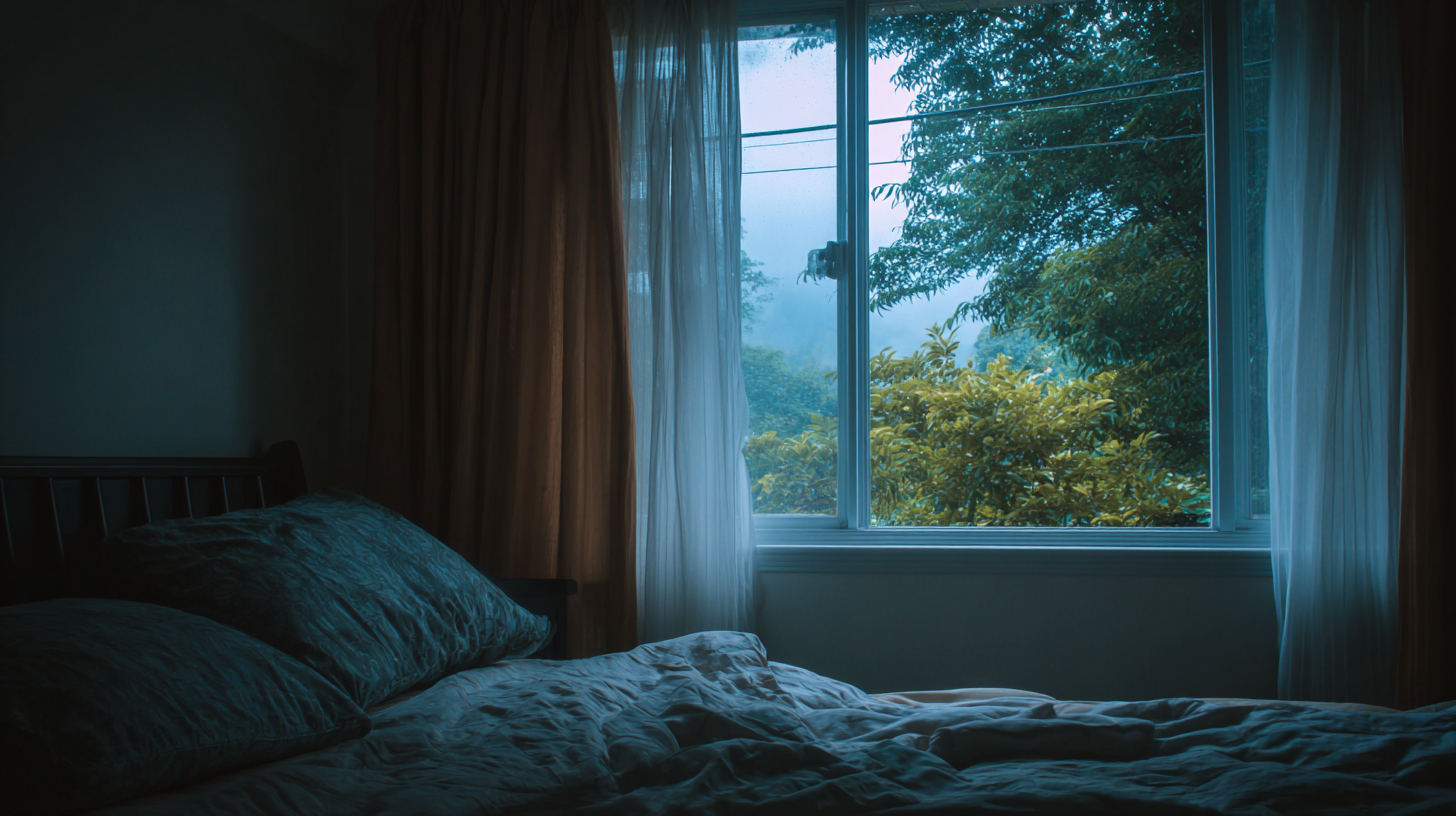
Recent statistics reveal that nearly 60% of adults struggle to get sufficient restorative sleep, with light pollution and busy lifestyles being significant contributors to this issue. Blackout curtains act as a barrier to light, effectively eliminating external disturbances and creating an optimal sleep environment. Furthermore, these curtains provide additional benefits such as temperature regulation and noise reduction, making them an essential investment for anyone serious about improving their sleep health.
In this article, we will delve deeper into the statistics and benefits of blackout curtains, highlighting why they are essential for better sleep. From the science behind light exposure to practical tips on choosing the right curtains, we aim to equip readers with the knowledge needed to transform their sleep experience.
The Science Behind Sleep: How Light Affects Our Rest
The science of sleep highlights the critical role light plays in regulating our circadian rhythms and overall sleep quality. Research suggests that artificial light, especially light pollution, significantly disrupts sleep patterns for a substantial portion of the global population. According to a Johns Hopkins report, around two-thirds of people worldwide are affected by light pollution, which can have detrimental effects on health and sleep quality.
This growing concern is being recognized, leading to initiatives aimed at increasing awareness of "light health" and promoting healthier light exposure practices.
Furthermore, recent studies indicate that specific types of light, such as red light, can influence sleep differently. For instance, research from Fudan University demonstrated that varying illuminance levels of red light could impact sleep in mice, suggesting that not all light is created equal when it comes to its effect on sleep. As individuals increasingly rely on electronic devices that emit blue light, understanding and mitigating light exposure before bedtime is essential for enhancing sleep quality.
As we navigate through the complexities of modern life, the need for blackout curtains becomes even clearer; they provide an effective barrier against disruptive external light, ultimately supporting deeper and more restorative sleep.
Transform Your Sleep Environment: The Role of Blackout Curtains
Creating an optimal sleep environment is essential for maximizing the duration and quality of rest. One of the most effective ways to achieve this is by incorporating blackout curtains. According to the National Sleep Foundation, approximately 90% of Americans report that their sleep is disrupted due to external light sources. Blackout curtains act as a barrier against this light, blocking up to 99% of sunlight, thus creating a dark and tranquil environment conducive to sleep.
Apart from minimizing light pollution, blackout curtains also help regulate room temperature by providing an additional layer of insulation. A study published by the National Institutes of Health indicated that a cooler sleeping environment can lead to improved sleep quality. With a reduction in outside noise and better temperature control, people using blackout curtains experience an average increase in total sleep time by 20%, as reported by the American Sleep Association. These curtains not only help in fostering a serene atmosphere but also play a pivotal role in enhancing overall well-being by allowing for deeper and more restorative sleep.
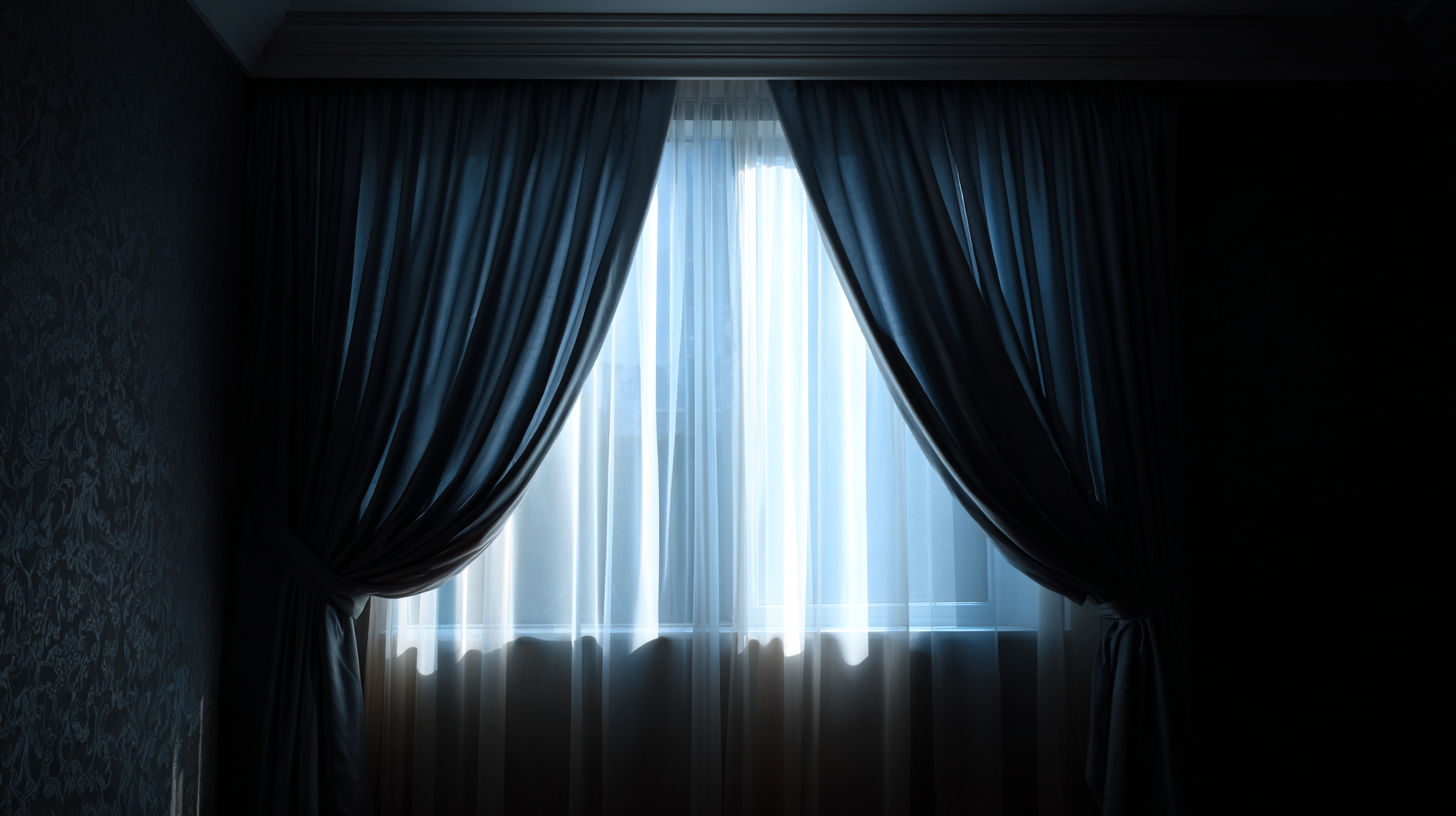
Key Statistics on Sleep Quality and Light Exposure
Light exposure significantly impacts sleep quality, making blackout curtains a vital addition to any bedroom. Research shows that over 60% of people sleep better in dark environments. In fact, exposure to light during sleep can disrupt natural circadian rhythms, leading to poor sleep quality and increased fatigue during the day. A study indicated that individuals using blackout curtains reported a 25% improvement in their overall sleep quality, highlighting the importance of minimizing light exposure for restful nights.
To enhance your sleep environment, consider installing blackout curtains. Not only do they block out unwanted light, but they also help maintain a stable room temperature, promoting better sleep. Additionally, when choosing blackout curtains, opt for thicker fabrics and darker colors for maximum efficiency. Another tip is to keep screens away from the bedroom to reduce light exposure from electronic devices, further contributing to a more restful sleep.
Creating a dark and serene sleeping environment can transform your nights and enhance your overall well-being. By implementing simple changes like blackout curtains, you can significantly improve your sleep quality and wake up feeling refreshed.
Health Benefits of Using Blackout Curtains for Restful Sleep
Creating a dark environment for sleep is crucial for maintaining optimal health and well-being. Studies demonstrate that even minimal light exposure, such as that from a cellphone screen or night lamps, can disrupt the body’s circadian rhythm. This disruption leads to decreased levels of melatonin, the hormone responsible for regulating sleep cycles, thus significantly affecting the quality of deep sleep. The National Sleep Foundation indicates that over 60% of people report difficulty sleeping due to light exposure, highlighting the essential nature of blackout curtains in promoting a restful night's sleep.

Furthermore, research shows that a sleep environment with complete darkness can enhance sleep efficiency and lead to longer durations of deep sleep. A study published in the "Journal of Clinical Sleep Medicine" found that individuals using blackout curtains reported an average improvement of 24% in overall sleep quality. With improved sleep quality not only does productivity during the day increase, but physical and mental health benefits also follow, including reduced stress levels and better cognitive function. Thus, investing in blackout curtains is not just a style choice but a health imperative for those seeking restorative sleep.
Choosing the Right Blackout Curtains: Features to Consider
When selecting blackout curtains, several crucial features should be considered to ensure optimal functionality and style. First and foremost, the fabric composition plays a significant role in light blockage. Look for materials specifically designed to block light effectively, such as polyester or specialized blackout blends. Additionally, the thickness of the fabric can enhance its ability to darken a room, making it easier to achieve a restful sleep environment.
Another important aspect is the curtain's length and width. Ensure that the curtains are long enough to cover the entire window and wide enough to overlap the edges, minimizing any light seepage. Furthermore, consider the heading style; curtains with a rod pocket or grommet top can provide a sleek look and easy operation. Lastly, color and design are also essential, as blackout curtains can significantly impact the room's overall aesthetic. Opt for colors and patterns that complement your existing decor while still serving their primary purpose of promoting better sleep.
Impact of Light Exposure on Sleep Quality
As illustrated in the chart, light exposure significantly affects sleep quality. Only 10% report having excellent sleep quality, while an impactful 15% experience poor sleep. The use of blackout curtains can help reduce light exposure, potentially improving sleep for many individuals.
Related Posts
-
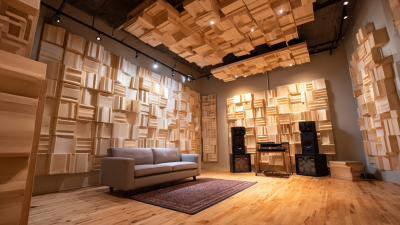
7 Best Sound Absorbing Panels for Ultimate Acoustic Comfort
-
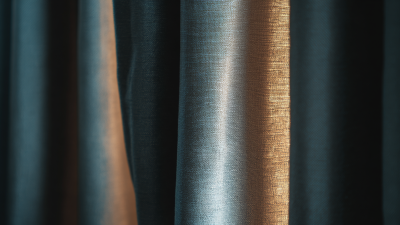
What is Sound Dampening Curtains and How They Reduce Noise Levels by up to 70 Percent
-

How to Choose the Best Noise Cancelling Curtains for a Peaceful Home in 2025
-
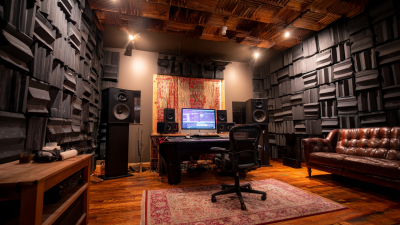
How Acoustic Foam Panels Enhance Sound Quality in Home Studios
-
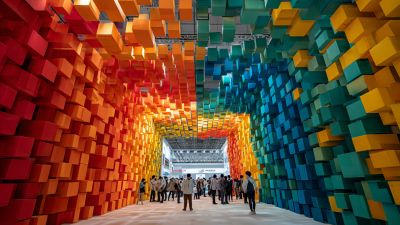
Exploring the Impact of Sound Absorbing Panels at the 138th Canton Fair 2025: Industry Insights and Trends
-
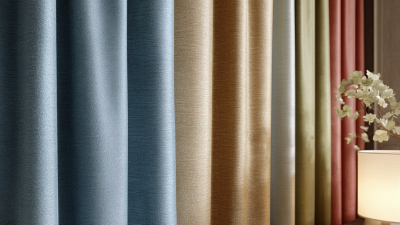
Transform Your Space: How Noise Reducing Curtains Enhance Home Serenity and Productivity